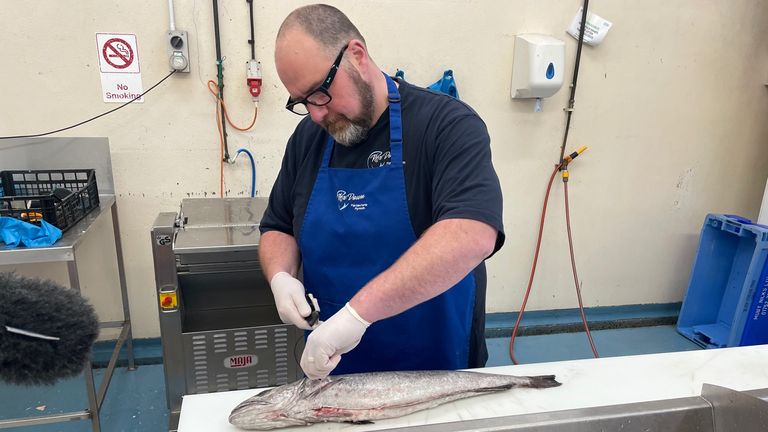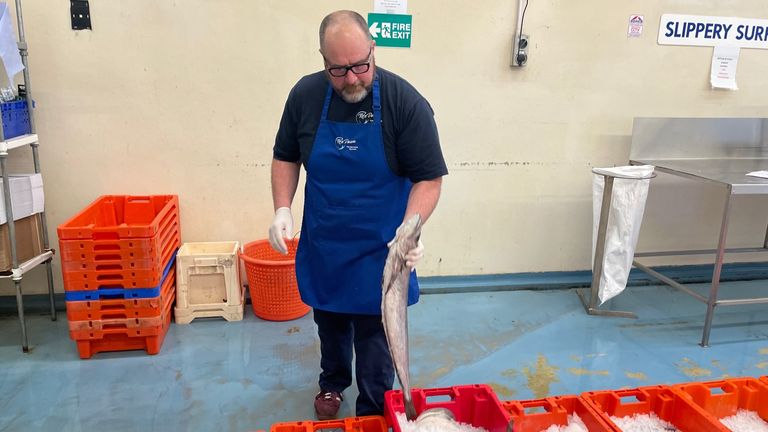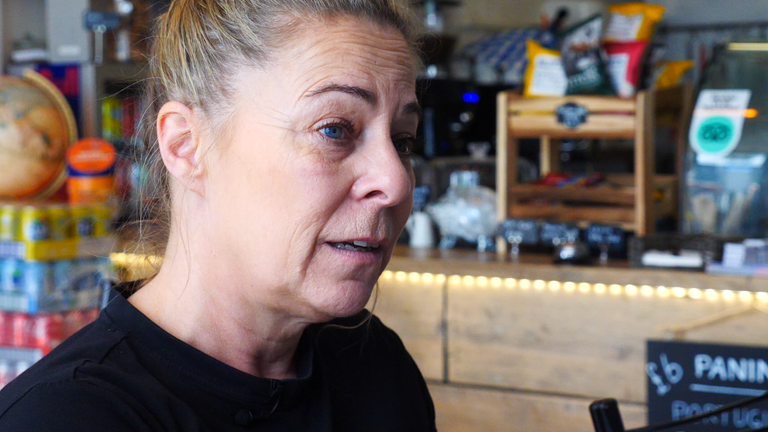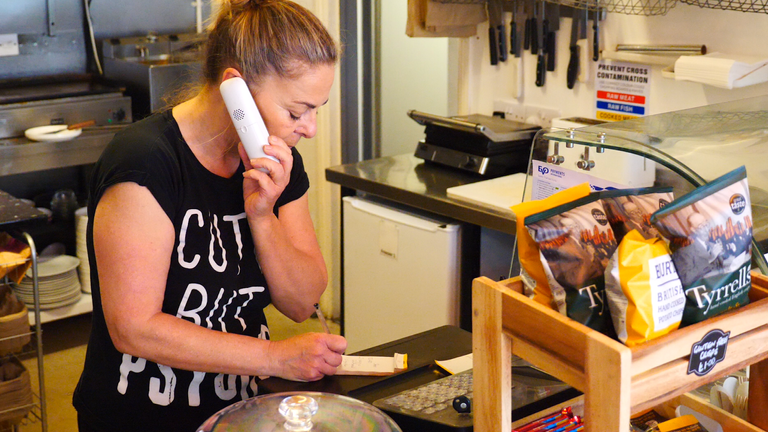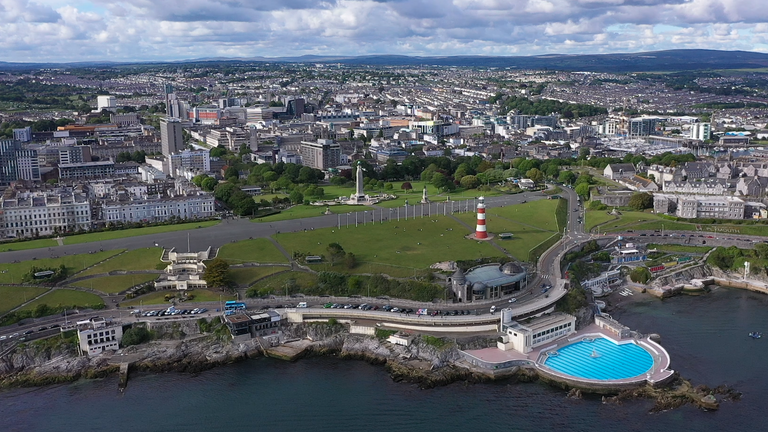[ad_1]
From fishermen to pensioners, food clubs to families – Sky News brings you a series of reports this week from the maritime city of Plymouth as the cost of living continues to rise.
In our second report, we investigate how increasing prices are impacting business.
It is a city built on its maritime fortune.
Plymouth accounts for nearly 10% of England’s entire marine industry and is home to the largest naval base in western Europe. Some 13.2% of England’s fish caught are landed here.
But it is clear that as the cost of living continues to rise, those working on the harbourside are feeling the increase just as much as those at home.
Rikki Down runs Rex Down Fish Merchants:
“Every boat needs fuel – they’re taking six, seven thousand litres a day. It’s gone from 55 pence a litre to over a £1 a litre – those things have got to be taken into consideration.”
Rikki starts work at 4.30am every day, selling fish which ends up in restaurants across the country.
But increasing prices are making it difficult.
He says: “From the very beginning the boats have to go out and catch it – their fuel has gone up, as I say, almost doubled so therefore that’s got to be passed on to us.”
“Our bills have gone through the roof. We’ve got to pass it on to our customers, we can’t absorb it. It’s getting ridiculous – even down to boxes, cardboard boxes have gone from 85 pence each to £1.30 and that’s in a matter of a couple of months,” he adds.
Worryingly, the rising cost in catching and processing fish is already resulting in redundancies.
Rikki says: “I’ve heard several people say to me they’re going from nine staff to seven, just so they don’t have to cover the wages.
“So that’s two jobs lost, more pressure on the economy, more pressure on the staff that are existing to put the extra hours in.”
The rising cost of boat fuel, pots and nets means someone has to pay – and Rikki says it’s leading to some awkward conversations:
“Restaurants and hotels – obviously they’re going to look for the best value they can get at all times – that’s always been the case but now that’s even more important.
“Restaurants can’t afford to staff, can’t afford to run, can’t afford to open – that puts us out of business, which in the reverse hand puts fishermen out of business.”
Read more:
Residents in Plymouth ‘constantly worrying’ amid rocketing bills and food prices
See how much your spending has increased over the past five years
From the fishing net to the restaurant table – all are worried about rising prices.
Kerry Parsons opened Cafe Bene near Plymouth’s Barbican in August 2020 – a few months into the COVID-19 pandemic.
Two years later, she is yet to pay herself a wage.
She says: “The cost of gas, electric, water has gone up massively. Food costs are through the roof. I’m not sure if I can pass that on to customers so I’m still trying to establish myself. I don’t want to put customers off by massively increasing my prices which I know lots of places are.”
Some of the ingredients she needs have doubled:
“We buy trays of eggs from a particular local supplier. They used to be three pounds a tray, they’ve now gone up to six pounds – they’ve doubled in price so I’m having to go somewhere else to source them. Oil has gone up 30% in the last couple of months, I don’t see it coming down anytime soon.”
The problem for Kerry is that many of her customers could not afford an increase in price on the menu.
She says: “Our all-day breakfast is seven pounds – it hasn’t gone up since we opened the business so that is something we need to be looking at. I’m a bit scared to be honest to pass that cost on.
“I don’t want people to not come in, I’ve worked really hard over the last two years to build this place and I’m afraid by putting the prices up too much people will just go elsewhere.”
Kerry speaks for hundreds of small business owners in Plymouth – and across the country.
With margins already tight, there is increasingly very little wiggle room to make a profit – or, in Kerry’s case, a living.
[ad_2]

